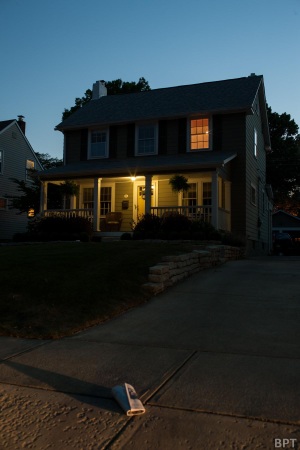 (BPT) – School is out and summer vacations are in full swing. But while many of us are relaxing, thieves are working overtime. Summer is theft season, at least according to Federal Bureau of Investigation (FBI) statistics that show more home thefts occur in June, July and August than any other month of the year. What families might not realize is that their everyday habits could be making their home more vulnerable to theft.
(BPT) – School is out and summer vacations are in full swing. But while many of us are relaxing, thieves are working overtime. Summer is theft season, at least according to Federal Bureau of Investigation (FBI) statistics that show more home thefts occur in June, July and August than any other month of the year. What families might not realize is that their everyday habits could be making their home more vulnerable to theft.
Nationwide Insurance recently asked home and condo insurance homeowners a series questions surrounding the protection of household personal property to determine how, or if, families are protecting their home from thieves.
“The survey revealed some risky, interesting consumer behaviors,” said Pete Lore, associate vice president of property technical claims for Nationwide. “For example, most of us know locking our doors will make our home safer, yet a quarter (25 percent) of homeowners surveyed admit to leaving the front door of their house unlocked when leaving home at least once in the past year.”
If these common mistakes turn into habits, then it could increase their chances of becoming the next theft victim.
Don’t help a burglar get in:
* Thirty-nine percent of homeowners admit they leave their doors unlocked more often or about the same as their parents did when they were growing up, despite a more than 200 percent increase in theft over the last 40 years
* Homeowners make themselves more vulnerable to theft by leaving windows unlocked on either the ground floor (35 percent) or second story and above (34 percent) at least once in the past year
* About one-third (30 percent) of those surveyed hide a spare key outside their home
* Forty-one percent of homeowners aged 18-34 post social media updates while they are on vacation
Turn on prevention measures:
* Although many (79 percent) homeowners report having at least one common theft prevention measure (e.g., alarm system), three in ten homeowners (30 percent) do not use any, putting their home at unnecessary risk
* Twenty percent of homeowners with an alarm system don’t activate it during the day, even though that’s when most thefts occur
Thieves know where your valuable items are:
* About three in 10 homeowners (29 percent) say the bedroom – the room that thieves visit first – contains the most valuables
* Many homeowners admit they do not document or keep track of their belongings (44 percent)
Home theft takes little time, but can be costly for homeowners. Burglars usually spend no more than 60 seconds breaking into a home, but the average cost to replace stolen belongings among victims of home theft is $3,584, according to the Nationwide survey. That’s why it’s important to implement even the simplest preventative measures, such as:
* Locking your doors and closing your windows before leaving the house
* Storing your jewelry and other precious items in unexpected places or safes
* Taking an inventory of your possessions and backing them up with images
* Installing motion-detecting lights around your property to deter burglars
* Informing local authorities or a trusted neighbor when you will be gone for an extended period of time. Ask them to drive by your house and check on it occasionally
* Refraining from promoting your travel online; burglars can use social media to find out who is not home
* Putting a hold on your newspaper and mail delivery while you are away or having someone pick it up for you







